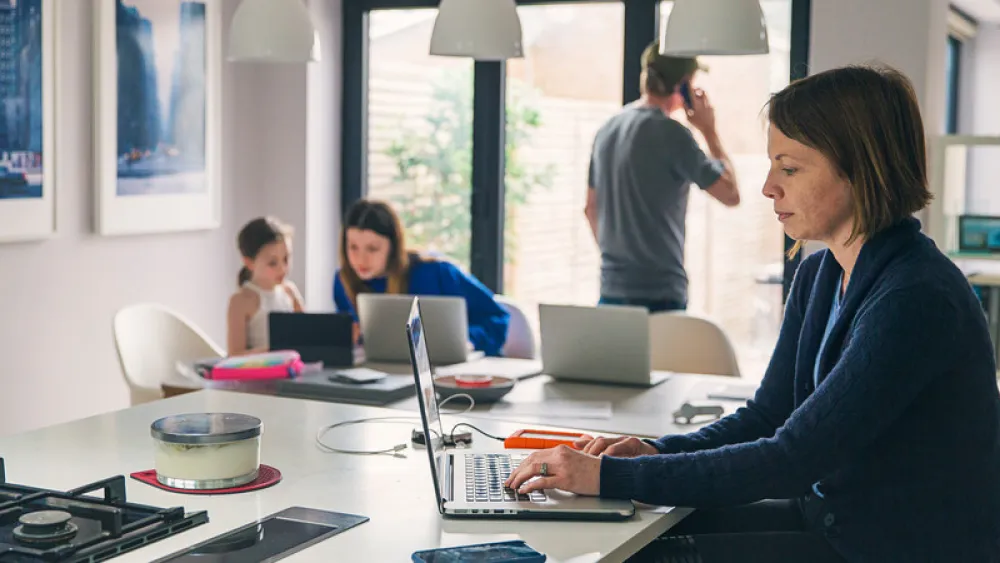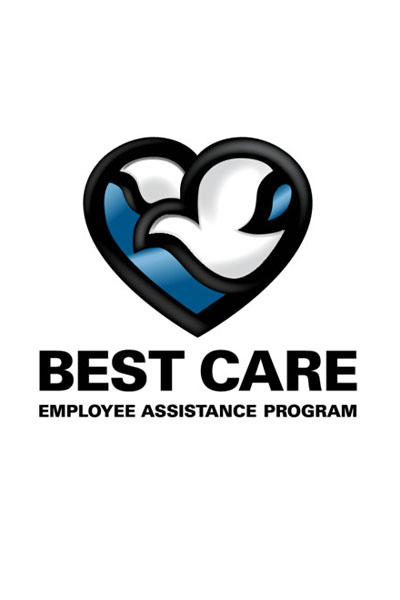Healthy Lifestyle
7 Tips for Working at Home During the COVID-19 Pandemic
Published: April 7, 2020

Tips for Working at Home
Whether you’ve been working at home for a few weeks and are struggling, or you’re just starting the transition, here are tips on how to stay productive and help yourself mentally during the work day:
- Get dressed. Changing clothes serves as a signal that it’s time to wake up and get things done. Take a shower, brush your hair – even put on makeup if that’s what you usually do. Just because you’re working from home doesn’t mean that no one will see you. It’s 2020, and we’re in for a lot of virtual meetings.
- Designate a workspace. Your workspace should feel as separate from the rest of your home as possible. Make it comfortable. Entering your workspace will help you turn “on,” and leaving your workspace will help you turn “off” at the end of the day.
- Keep clearly defined work hours. Set your hours ahead of time. If you usually work 9 a.m. to 5 p.m. with an hour for lunch, then keep that schedule. Establish boundaries with those you live with so you can cut down on distractions during the day – and then disconnect and give the people you care about your full attention.
 Build transitions into (and out of) work. Your morning commute gives your brain time to “prepare” for work. If you usually listen to music on your commute, do that in the mornings before you log on. At the end of the day, do the reverse. Maybe even add in short walks outside to transition from “work” to “home.”
Build transitions into (and out of) work. Your morning commute gives your brain time to “prepare” for work. If you usually listen to music on your commute, do that in the mornings before you log on. At the end of the day, do the reverse. Maybe even add in short walks outside to transition from “work” to “home.” - Don’t get too sucked in by the news. Distraction is one of the big challenges facing people who work from home. It’s human. You probably already take a few breaks throughout the day at the office, and you should at home, too. Right now the biggest distraction is the news. Checking in on updates is going to be at the front of your mind. It’s good to stay informed, but limit your time and exposure to curb your anxiety.
- Communicate, communicate, communicate. Anticipate there will be some bumps in the road. The key is communication. Come up with a plan that lays out how often you should check in, assignment of tasks, etc. This situation is new for everyone and will change daily. Just circle back and alter plans if issues come up. You might find it’s best to check in with your boss and coworkers over the phone or through video chat if you find yourself struggling to communicate over an issue or task.
- Don’t forget to socialize. When the whole office suddenly starts working from home, you’re cutting off a lot of casual social interactions you’re used to having throughout the day. Combat this by talking with your coworkers through calls, texts or even video conferencing. If you usually ask your coworker about their weekends, keep that up. If you’d usually comment to them about a specific topic, reach out. These little interactions go a long way to staying connected.
The Methodist Emotional Support Line
We’re feeling anxious and uncertain right now, and suddenly being isolated at home can amplify these feelings. If you’re experiencing fear, sadness, anxiety or depression, call the Methodist Emotional Support Line to speak with a licensed professional counselor from the Methodist Hospital Community Counseling Program. The free, confidential service can be accessed by dialing (402) 815-8255 (TALK) and is available Monday through Friday from 9 a.m. to 6 p.m. Counselors can help by answering questions, addressing concerns, scheduling counseling appointments for additional care and providing referrals to community resources.
More Resources
- Learn more about Best Care EAP
- Read more about the Methodist Hospital Community Counseling Program
- Learn more about managing anxiety during COVID-19
- Follow Methodist on Facebook, Instagram and Twitter for COVID-19 updates


